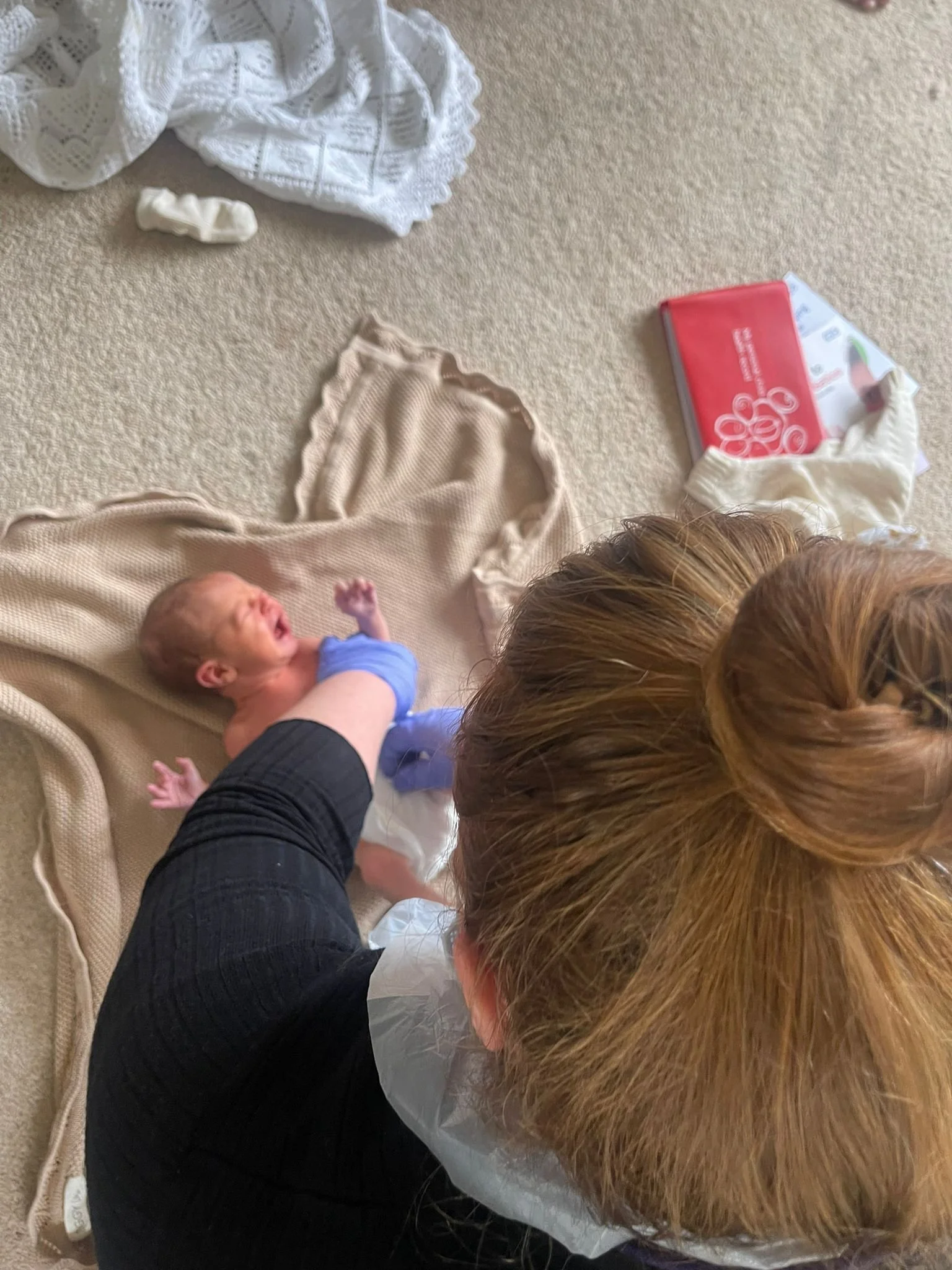The postpartum period ~ why is it so important?
Good postnatal care is so valuable to a new family. It can be such a tiring, turbulent and anxiety fuelled time for any new parent and unhurried, bespoke and meaningful continuity of care goes a long way in making new parents feel more supported and nurtured during this transition period.
I emphasise the point “good” because not all postnatal care is. It is often inadequate at best, due to staffing, large caseloads or time constraints. Routine NHS care can be as little as 3 visits lasting no longer than 20 minutes in the first 10 days before you’re then discharged. 20 minutes on average to perform the physical postnatal checks of a new mother and baby, review the birth and offer a debrief if needed, complete documentation, chat about how they are feeling and coping, discuss baby’s feeding and any concerns, offering feeding support, performing any screening tests, weight checks and just sometimes holding space. Being present and listening is sometimes all that is needed. 20 minutes is just not enough. 10 days is not long enough.
The postpartum period can last as long as 6 weeks and then some, and for many new families, they need and value ongoing support for this duration. Many families don't have a support network around them from friends, family or even a partner and can often feel very isolated during this time. Sometimes the only contact they will have after the birth of their baby will be from a health professional. Imagine how tough figuring out this tricky period is when you're doing it alone! Midwifery care during this time can make such a difference and dedicating adequate support and time can really enhance a persons postpartum experience. We need to nurture new mothers too, not just new babies.
Why is postnatal care so important?
Matrescence - if you didn’t know, is the monumental and complex physical, psychological and emotional process of becoming a mother. Starting during a pregnancy and continuing to evolve after the birth. It can be a challenging time and this adaptation can bring a lot physical and mental health stressors. It is a period when new mothers need support more than ever to process these changes. Preparation and education during the antenatal period is extremely valuable in making these transitions easier by exploring expectations and realities.
Postpartum planning and preparation is something I can’t recommend enough and discuss with my clients during their pregnancy.
Matrescence on its own, is such a huge topic and although not the only focus of this post, needs to be mentioned in relation to why good postnatal care is essential.
What would good postnatal care look like to you? Did you experience good postnatal care? If so, what made it good and if not, what would you change? I would love to hear your experiences.
As an independent midwife with a small caseload I am able to dedicate the time needed to new families to offer any support they need. The appointments are as long as they need to be, on average they may last 1-2 hours and can be as frequent as needed in those first few weeks. I offer postnatal care for up to 6 weeks and a variety of bespoke packages of care to suit everybody’s needs and phone contact inbetween for those little questions or worries that inevitably pop up.
Offering continuity of care to all of my clients allows dedicated time for these conversations to happen during the pregnancy and knowledge of what my clients want and need. We can discuss postpartum care in depth and explore the complexities of this transition period with a good plan in place to ensure adequate support from the start.
When a child is born, so too is a mother.




